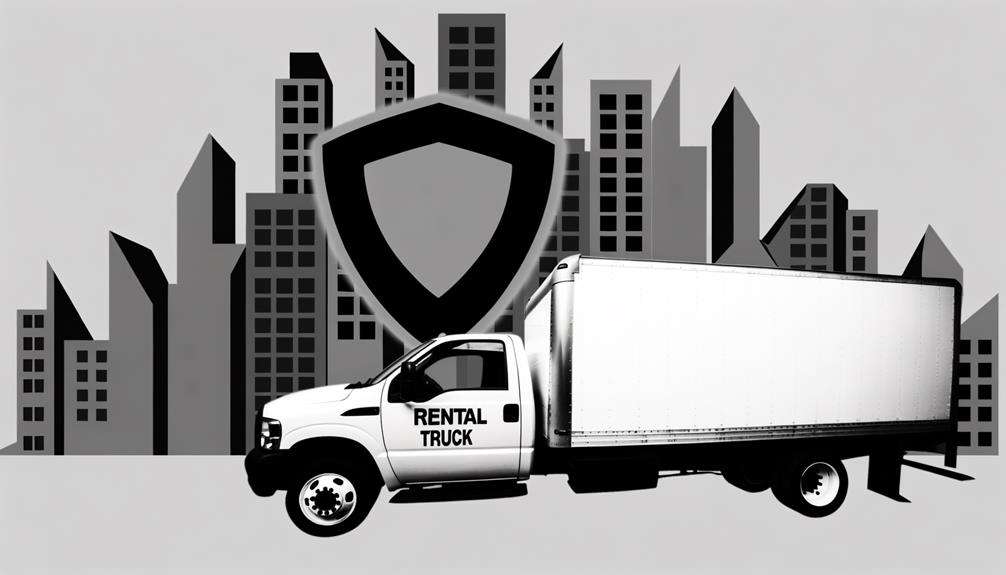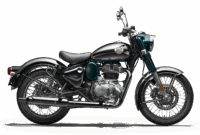Rental Truck Insurance Coverage: Your Comprehensive Guide to Protecting Your Move cars.truckstrend.com
Moving, transporting large items, or embarking on a DIY project often involves renting a truck. While the excitement of a new beginning or a completed task is palpable, an often-overlooked yet critical aspect of this process is rental truck insurance coverage. Far from a mere formality, understanding and securing the right insurance for your rental truck is paramount to protecting yourself from potentially devastating financial liabilities.
Unlike renting a standard passenger car, where personal auto insurance or credit card benefits often extend coverage, rental trucks typically operate under different rules. These larger, heavier vehicles present unique risks, and a standard car policy or credit card benefit may not provide the necessary protection. This guide will meticulously break down everything you need to know about rental truck insurance coverage, helping you navigate your options with confidence and peace of mind.
Rental Truck Insurance Coverage: Your Comprehensive Guide to Protecting Your Move
Why You Need Rental Truck Insurance: Understanding the Risks
Renting a truck, whether it’s a small cargo van or a large 26-foot moving truck, comes with inherent risks that differ significantly from driving your personal vehicle. These vehicles are larger, less maneuverable, have different blind spots, and require more skill to operate safely, especially when fully loaded.
Consider the potential scenarios:
- Accidents: A fender bender in a compact car is one thing; an accident involving a large truck can cause extensive damage to the truck itself, other vehicles, and property, leading to high repair costs and significant liability claims.
- Theft or Vandalism: While less common, rental trucks can be stolen or vandalized, leaving you responsible for the vehicle’s full value if you lack proper coverage.
- Damage to the Truck: Even a minor scrape against an overhang, a backing-up mishap, or an unexpected pothole can cause thousands of dollars in damage to the rental truck, for which you are financially liable.
- Injury to Others: If you’re at fault in an accident, your responsibility extends to medical expenses and lost wages for injured parties, as well as property damage.
- Damage to Your Belongings: While the truck itself might be covered, what about the precious cargo inside? Your personal belongings are also at risk.

Without adequate rental truck insurance coverage, any of these incidents could result in substantial out-of-pocket expenses, potentially wiping out savings or leading to significant debt.
Decoding Your Existing Coverage Options
Before you even consider purchasing additional coverage from the rental company, it’s wise to investigate your existing insurance policies. However, be prepared for some important distinctions.

Personal Auto Insurance
This is often the first place people look for rental truck insurance coverage. Unfortunately, most personal auto insurance policies do not extend coverage to rental trucks, especially those exceeding a certain gross vehicle weight rating (GVWR), which typically applies to moving trucks. Policies are generally designed for passenger vehicles. While some policies might cover smaller cargo vans, it’s rare for larger moving trucks.
Actionable Insight: Do not assume. Call your personal auto insurance provider directly and explicitly ask if your policy covers rental trucks (specifying the type of truck you plan to rent, e.g., 15-foot moving truck, cargo van). Get the answer in writing if possible.
Credit Card Coverage
Many credit cards offer rental car insurance as a benefit. However, similar to personal auto insurance, credit card rental car benefits almost universally exclude rental trucks. These benefits are typically limited to standard passenger vehicles and often have specific exclusions for vehicles used for moving purposes, commercial use, or those exceeding a certain weight or passenger capacity.

Actionable Insight: Check your credit card’s benefits guide very carefully. If you’re unsure, call your credit card issuer’s benefits administrator and confirm their policy regarding rental trucks.
Homeowners/Renters Insurance
Your homeowners or renters insurance policy might offer limited rental truck insurance coverage for your personal belongings while they are in transit within the rental truck. This coverage is usually subject to your policy’s deductible and specific perils (e.g., fire, theft, collision). However, it will not cover damage to the rental truck itself or your liability for damage or injury to others.
Actionable Insight: Review your policy or contact your insurer to understand the extent of coverage for personal property in transit. Remember, this is separate from coverage for the truck itself.
Types of Rental Truck Insurance Offered by Rental Companies
Given the limitations of personal policies, the most common and often necessary source of rental truck insurance coverage comes directly from the rental company. These options are designed specifically for the unique risks associated with their vehicles.
1. Damage Waiver (DW) / Loss Damage Waiver (LDW)
- What it Covers: This is arguably the most important type of rental truck insurance coverage offered. The Damage Waiver (often called a Loss Damage Waiver or LDW) is not technically insurance but a contractual agreement where the rental company waives its right to hold you responsible for damage to the rental truck itself. This typically includes damage from collision, theft, vandalism, and sometimes even non-collision damage like hitting an overhead object (though overhead damage can sometimes be an exclusion, so read the fine print!).
- What it Doesn’t Cover: It does not cover liability for damage to other vehicles or property, personal injury, or damage to your personal belongings inside the truck.
- Why it’s Crucial: Without this, if the truck is damaged, you are on the hook for the full cost of repairs or the vehicle’s diminished value, which can be tens of thousands of dollars.
2. Supplemental Liability Insurance (SLI)
- What it Covers: This provides additional rental truck insurance coverage for third-party bodily injury and property damage. Rental companies typically provide the minimum state-mandated liability coverage as part of the rental agreement, but these limits are often very low (e.g., $10,000 to $25,000). SLI significantly increases these limits (often to $1 million or more), protecting you if you cause an accident that injures others or damages their property.
- What it Doesn’t Cover: It does not cover damage to the rental truck itself, your own injuries, or your personal belongings.
- Why it’s Crucial: In a serious accident, state minimum liability limits can be quickly exhausted, leaving you personally responsible for the remainder of medical bills, property repairs, and legal fees. SLI offers critical financial protection against potentially ruinous lawsuits.
3. Personal Accident Insurance (PAI)
- What it Covers: PAI provides medical expense benefits and accidental death benefits for the renter and their passengers if they are injured or killed in an accident involving the rental truck.
- What it Doesn’t Cover: It does not cover damage to the truck, third-party liability, or personal belongings.
- Why it’s Important: This coverage can be useful if you or your passengers do not have adequate health insurance or life insurance. However, if you have robust personal health and life insurance policies, PAI may be redundant.
4. Personal Property Protection (PPP)
- What it Covers: PPP provides rental truck insurance coverage for loss or damage to your personal belongings inside the rental truck due to specified perils like fire, theft, or collision.
- What it Doesn’t Cover: It does not cover damage to the truck itself, liability, or personal injury. It also often has specific exclusions for high-value items or certain types of damage.
- Why it’s Important: While your homeowners or renters insurance might offer some protection, PPP can fill gaps or provide a lower deductible option for your items specifically during the move.
Making an Informed Decision: What to Consider
Choosing the right rental truck insurance coverage requires a careful assessment of your needs, risks, and existing policies.
- Assess Your Risk Profile: How long is your rental period? How far are you driving? Are you navigating busy city streets or open highways? Are you experienced driving larger vehicles? The higher the perceived risk, the more comprehensive your coverage should be.
- Review All Existing Policies (Thoroughly!): As discussed, call your personal auto insurer, credit card company, and homeowners/renters insurer. Get concrete answers about what is and isn’t covered for a rental truck. Do not rely on assumptions.
- Understand Rental Company Contracts: Read the rental agreement carefully, especially the sections pertaining to responsibility for damage and what is excluded from their basic coverage and optional waivers. Pay attention to clauses about "overhead damage," "unauthorized drivers," or "prohibited uses."
- Weigh Cost vs. Coverage: While the daily cost of additional rental truck insurance coverage might seem high (often $10-$40+ per day), compare it to the potential out-of-pocket costs of thousands, or even tens of thousands, of dollars if an accident occurs without coverage. Peace of mind often comes at a small price.
- Identify Coverage Gaps: After reviewing your personal policies, identify where you might be exposed. Most people find significant gaps in liability and damage to the rental vehicle itself.
Tips for Renting a Truck and Managing Insurance
- Inspect the Truck Thoroughly: Before driving off, walk around the truck with the rental agent. Document any existing dents, scratches, or damage with photos or videos. Ensure these are noted on your rental agreement. This prevents you from being blamed for pre-existing damage.
- Understand Fuel Policies: Most rental trucks need to be returned with the same fuel level as when picked up. Not doing so can result in expensive refueling charges.
- Know What to Do in Case of an Accident: If an accident occurs, first ensure everyone’s safety. Then, contact emergency services if necessary, exchange information with other parties, and immediately notify the rental company.
- Drive Defensively: Rental trucks handle differently. Allow extra stopping distance, take turns wider, be aware of overhead clearances, and check blind spots frequently.
- Don’t Overload: Adhere to the truck’s weight limits to maintain control and prevent damage.
Rental Truck Insurance Coverage – At a Glance (Price Guide)
Please note: These are estimated daily costs and can vary significantly based on the rental company (U-Haul, Penske, Budget, etc.), location, type of truck, and specific policy limits. Always confirm exact pricing with your rental provider.
| Coverage Type | What it Covers | Typical Daily Cost Range (USD) | Who Needs It Most |
|---|---|---|---|
| Damage Waiver (DW/LDW) | Waives financial responsibility for damage to the rental truck (collision, theft, vandalism). | $10 – $35+ | Everyone, especially if personal auto/credit card offers no rental truck coverage. |
| Supplemental Liability Insurance (SLI) | Increases liability coverage for bodily injury and property damage to third parties. | $8 – $25+ | Everyone, especially if personal auto policy doesn’t cover rental trucks or has low limits. |
| Personal Accident Insurance (PAI) | Medical expenses and accidental death benefits for renter and passengers. | $5 – $10+ | Individuals without comprehensive health or life insurance. |
| Personal Property Protection (PPP) | Loss/damage to personal belongings inside the truck due to specified perils. | $5 – $10+ | Those with high-value items, or if homeowners/renters insurance deductible is high. |
Disclaimer: The prices listed above are estimates and can vary widely based on location, rental company, and specific policy details. Always confirm exact pricing and coverage specifics with your chosen rental truck provider.
Frequently Asked Questions (FAQ)
Q1: Is rental truck insurance mandatory?
A1: No, purchasing the optional rental truck insurance coverage offered by the rental company is typically not mandatory by law. However, you are financially responsible for any damage or liability that occurs while the truck is in your possession. Declining coverage means you assume all financial risk.
Q2: Will my personal auto insurance cover a U-Haul, Penske, or Budget truck?
A2: In most cases, no. Personal auto insurance policies are generally designed for passenger vehicles and usually exclude larger rental trucks, especially those used for moving purposes. Always confirm with your specific insurer.
Q3: Does my credit card offer rental truck insurance?
A3: It’s highly unlikely. Most credit card rental car benefits explicitly exclude rental trucks, moving vans, or vehicles used for commercial purposes. Always read your card’s benefits guide or call the issuer to confirm.
Q4: What happens if I decline all insurance options?
A4: If you decline all optional rental truck insurance coverage, you assume full financial responsibility for any damage to the rental truck, damage to other property, or injuries to third parties. This could lead to thousands, or even hundreds of thousands, of dollars in out-of-pocket expenses.
Q5: Is the Damage Waiver (DW/LDW) really worth it?
A5: For most people, yes. The cost of repairing damage to a rental truck can be astronomical, and without the DW, you are on the hook for it. Given that personal auto and credit card coverages rarely apply, the DW is often the only way to protect yourself from this significant financial risk.
Q6: Can I buy third-party rental truck insurance?
A6: While third-party rental car insurance options exist, dedicated third-party rental truck insurance coverage for personal moves is rare and often complex to find. The most straightforward and reliable options are typically those offered directly by the rental companies.
Conclusion
Navigating the world of rental truck insurance coverage can seem daunting, but taking the time to understand your options is an investment in your financial security and peace of mind. Assuming your personal auto policy or credit card will cover a rental truck is a common and potentially costly mistake.
By understanding the types of coverage available from rental companies – especially the Damage Waiver and Supplemental Liability Insurance – you can make an informed decision that protects you from the unique risks associated with driving a larger vehicle. Don’t let a desire to save a few dollars daily expose you to a potential financial catastrophe. Choose wisely, drive safely, and enjoy your move with the confidence that you’re properly covered.



